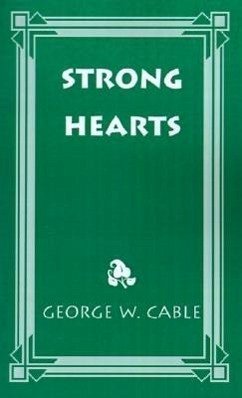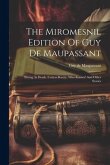"Cable's insistence upon social and moral realism in his work has led critics to identify him as the most important Southern writer of the late nineteenth century." --from the foreword by Chance Harvey George Washington Cable was one of the most influential and celebrated Southern writers of his day, from the Civil War to the nineteenth century. While he served as a Confederate soldier, he returned home from war to support the local color movement. As a reporter for the Times-Picayune, Cable wrote on local, literary, and social issues, some of which were controversial in contemporary Louisiana. Described as the first modern Southern writer, Cable's work inspired later writers William Faulkner and Robert Penn Warren. "The Solitary, "The Taxidermist," and "The Entomologist" all take place in South Louisiana and include Creole and German characters, among others. Each short story speaks to the same universal principle--they are tales of strong hearts. With a focus on the morality and the resilience of the soul, Cable highlights its complex and poetic nature. He simultaneously represents the unique personality of the South and the universality of the human condition. In the foreword, Chance Harvey provides insight into Cable's life and work, treating this collection of short stories as an academic and historical text. Through use of "authentic dialect" and "accurate detail," Harvey notes, Cable's short stories explore the realm where religion and poetry converge, creating a hybrid form of romantic fiction and moral realism. Harvey is a noted Lyle Saxon scholar whose fascination with Saxon began as a student at Tulane University and developed into a life-long passion. She is the author of The Life and Selected Letters of Lyle Saxon, published by Pelican.
Hinweis: Dieser Artikel kann nur an eine deutsche Lieferadresse ausgeliefert werden.
Hinweis: Dieser Artikel kann nur an eine deutsche Lieferadresse ausgeliefert werden.








